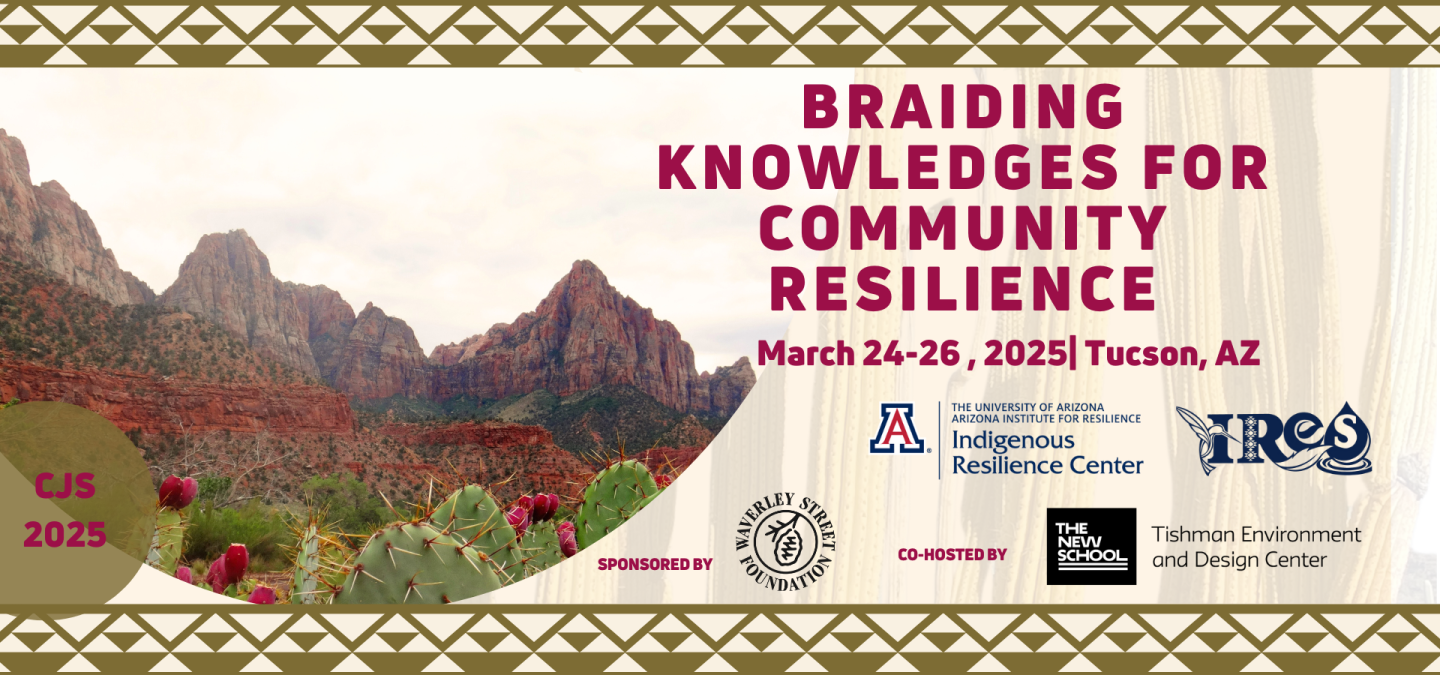
Waverley Street Foundation Awards the Tishman Environment and Design Center at The New School $8 Million to Support Frontline Communities in Developing Climate and Energy Policy
For decades, lower-income communities and communities of color have been disproportionately burdened by pollution and the climate crisis, as they often live near sites where waste is stored and incinerated, industrial warehouses are located, and natural resources are exploited. The resources and support provided by philanthropic and research organizations has become increasingly vital to the environmental justice movement’s efforts to assist these communities with transforming political, economic, and social systems and creating climate solutions at the local, tribal, national, and global levels.
The Tishman Environment and Design Center was recently awarded an $8 million grant from the Waverley Street Foundation to support its work in building the capacity of these frontline communities to develop climate solutions and energy policies. The Tishman Center will also use the grant to support state and regional efforts to promote renewable energy and regenerative agriculture in Arizona, California, and New Mexico.
“The ability to discover and implement the most effective responses to the ongoing climate crisis that is disproportionately impacting communities of color and low-wealth communities has to occur in partnership with the groups working at the frontline in these communities. I am grateful to have the Waverley Street Foundation’s investment in this work so that the Tishman Center can act as a platform to bring these organizations together and serve as a catalyst for change to usher in a new and more just future for all communities,” said New School President Joel Towers in a press release announcing the grant.
The Waverley Street Foundation (WSF) invests in community innovations that are advancing climate action from the ground up—action that starts locally and builds up to the regional, national, and global levels. The grant will play a pivotal role in supporting joint efforts to promote a transition to clean, renewable energy and Indigenous-led regenerative agriculture and traditional land-based knowledge and water systems.
“We believe in the powerful and effective model of community groups and academia working together on climate solutions,” said Alexandria McBride, a program officer at WSF, in a press release. “This important work has also helped to connect an incredible pipeline of diverse student leaders—such as the ones at The New School—with grassroots organizations, helping them gain the experience needed to be our future innovators for community-based climate action.”
The grant significantly advances the Tishman Center’s critical efforts to provide infrastructure and resources for the environmental justice movement, enabling participants to develop design innovations and to prototype and test solutions that will transform energy, land, and water systems. The center will also use the award to create a model for university–community partnerships that can apply investments from multiple sectors to develop just climate solutions. A key component of that effort is the Centering Justice Symposia (CJS), launched in 2024, which bring together climate and environmental justice leaders and organizations, allied academic institutions, and philanthropists to explore ways higher education can better align with movements and advance just partnerships. This year’s symposium, CJS 2025: Braiding Knowledges for Community Resilience, a joint effort with the University of Arizona’s Indigenous Resilience Center (IRes), took place on March 24–26. Participants worked to deepen relationships and networks for collaboration, share knowledge and best practices, and build strategies to better serve climate and environmental justice movements in the coming period. Future symposia are scheduled for 2026 and 2027.
“Impactful movements for climate and environmental justice and multisectoral partnerships are urgently needed to respond to and prepare for the intersecting challenges we face. The Tishman Center is committed to supporting this long and arduous work as a trusted partner. This grant represents a strategic alignment to accelerate climate and environmental justice priorities and critical frontline, grassroots solutions to the climate crisis,” said Ana Isabel Baptista, director of the Tishman Center, in a press release.